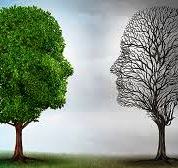World Bipolar Day is designed to raise awareness worldwide of bipolar conditions and to work to eliminate social stigma whilst providing information to educate and help people understand the condition.
Bipolar disorder affects a person’s mood, which can swing from one extreme to the other, with someone suffering from the disorder having episodes of depression or mania. People living with bipolar disorder, also known as manic-depressive illness, tend to have their lives significantly disrupted as it can impact on a person’s ability to function. There are however several medications that can help to treat it.
Source: Text: AWARENESS DAYS UK Image: Bon coin santé
Bipolar disorder affects over 60 million people worldwide.
Source: Text: isbd.org
What is World Bipolar Day?
The vision of World Bipolar Day (WBD) is to bring world awareness to bipolar conditions and to eliminate social stigma. Through international collaboration, the goal of WBD is to bring the world population information about bipolar conditions that will educate and improve sensitivity towards the condition.
WBD is celebrated each year on March 30th, the birthday of Vincent Van Gogh, who was posthumously diagnosed as probably having a bipolar condition.

 misun
misun